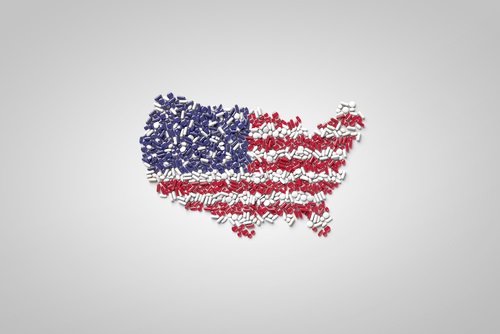
A bill introduced in the US seeks to strengthen the pharma supply chain by increasing penalties for counterfeiting.
Introduced by Republican Leonard Lance in May, the new bill looks (HR 2376) to amend the Federal Food, Drug and Cosmetic Act so that the penalties dished out to conmen counterfeiting medicines are on a par with criminals who divert legitimate drugs.
Currently there is a discrepancy between the two crimes. If a person is found guilty of producing and distributing counterfeit drugs in the US they can expect to receive no more than a year in prison with fines up to $1,000. In contrast, diverting US-made drugs for foreign markets back into the US can carry a 10-year prison sentence with fines reaching $250,000. Meanwhile, cases where drugs are manufactured overseas and destined for foreign markets but which get diverted to the US are treated leniently with individuals slapped with a simple misdemeanour.
According to the new bill – dubbed the Drug Diversion and Counterfeit Crackdown Act of 2017 – there is no grounds for differing penalties.
"There should not be unequal treatment of counterfeiting and diversion, enabling criminal enterprises to exploit statutory loopholes and jeopardise patient and consumer safety without fear of significant penalties," the bill says, calling for the penalties against counterfeiters to increase to 10 years to match the penalties for diversion.
"Counterfeit drugs are flooding into the US and too many Americans are falling victim to knock-offs that have infiltrated the US supply chain," Lance said in a statement.
"These counterfeit drugs contain harmful ingredients and incorrect or expired active ingredients. Cancer patients think they are taking the correct chemotherapy medicine but these fraudsters instead give the unsuspecting patient 50 per cent of the real treatment. These criminals take the risk knowing the punishment is a minor offense in our criminal code. That needs to change. We need to strengthen the system and protect patients."
Earlier this year, Sheldon Bradshaw, partner in the FDA and life sciences practice groups at law firm King & Spalding, wrote in an article for the Washington Legal Foundation that the disparate penalties were not logical and "woefully limited".
He claimed the integrity of the US drug supply chain was "under constant threat" and that the statutory gaps in penalties posed a risk to the American consumer.
"Given that such drugs have the potential to be equally, if not more dangerous or ineffective than those manufactured in the US for foreign markets, the disproportionately light penalty framework makes little sense [and] is difficult to justify," he wrote.
"The differing levels of jail time and fines for drug counterfeiting and diversion is one major factor in the proliferation of illegal sales and the continued viability of businesses that make such sales… These unreasonable gaps and disparities could be easily addressed through minor tweaks to the FDCA, changes that would benefit public health and enhance consumer confidence in the safety of their medications."
Lance's legislative crackdown follows concerns that many American patients are buying and using bogus drugs disguised as reputable brands. In particular, an opioid crisis has gripped the country where painkillers and anti-anxiety meds have been adulterated with the extremely powerful pain drug fentanyl, which has led to hundreds of overdoses and deaths.
According to the US Centers for Disease Control, an estimated 30 per cent of all drugs in developing countries are counterfeits, Lance said, adding: "With little oversight, these drugs are then introduced into the US, placing the entire secure supply chain at risk."
He believed the bill would close the loopholes in the law and discourage the black market from growing.
Other advocates, as cited by The American Spectator, believe the bill would also help prevent future restrictions in the personal importation of drugs and forgo giving deferral prosecutors more power to penalise legitimate parties in the industry.
Meanwhile, some states in the US have taken legislative measures into their own hands to crackdown on counterfeit opioid drugs. Florida, for instance, has passed a bill that adds fentanyl and other synthetic opioids to the state's drug trafficking statute as schedule I controlled substances, which will result in stricter punishment for dealers, including 25 years behind bars for possession, along with a fine of between $50,000 and $500,000, and a first-degree murder charge in the case of an overdose death.
©
SecuringIndustry.com





